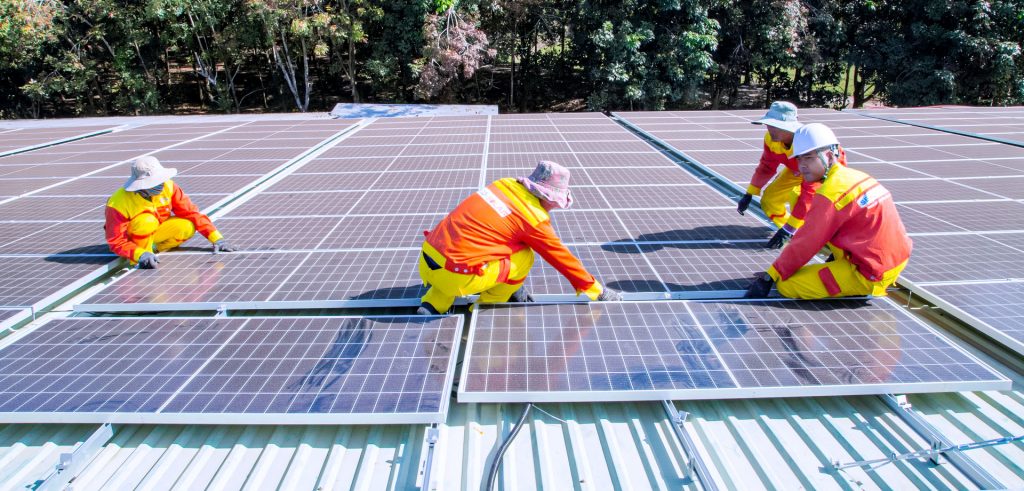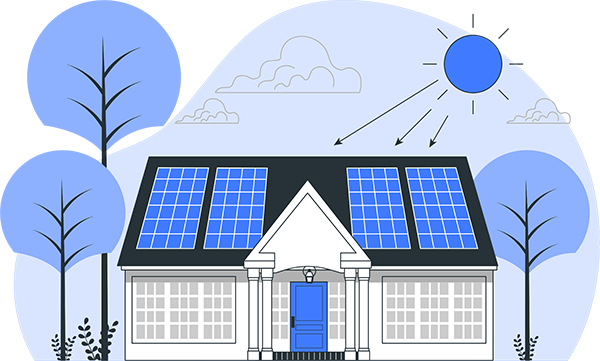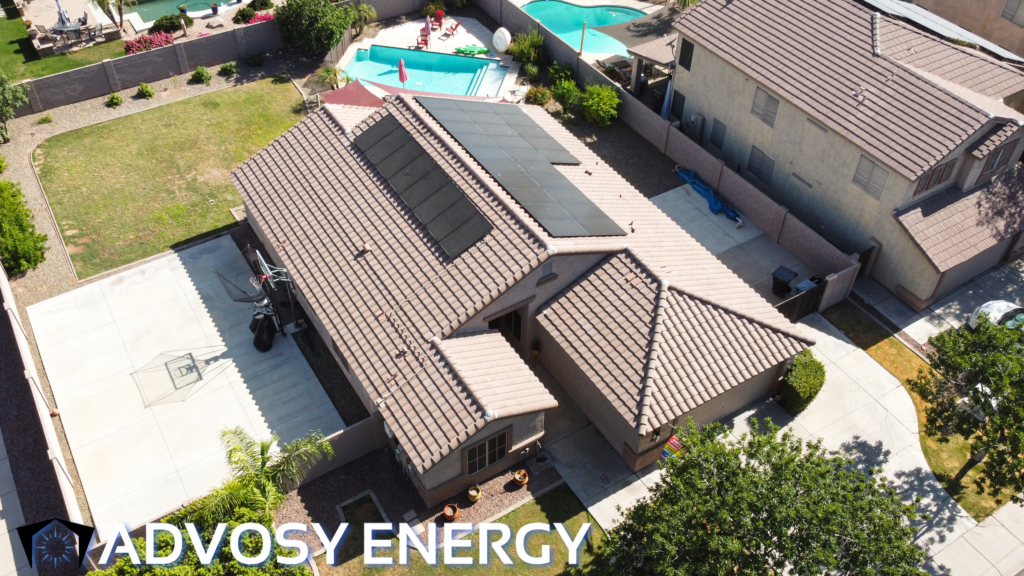Purchasing, as opposed to leasing solar panels for residential use has become an increasingly attractive option in recent years. With energy costs on the rise, homeowners are looking for ways to reduce their monthly bills and take advantage of green technology that is both cost efficient and environmentally friendly.
This article will outline the benefits associated with owning your solar panels versus leasing them from a third party. For those considering investing in alternative energy sources, purchasing solar panels can be a great way to save money over time while also receiving tax credits at the same time.
1. Cost Savings
Owning a solar panel system can provide significant cost savings to homeowners.
One of the most compelling benefits is reduced utility bills.
By generating their own energy, users will be able to drastically reduce or even eliminate electricity costs.
Furthermore, not only does it save money in the short term but also provides long-term value for those looking for stability and predictability in their lifestyle change.
The initial investment may seem high, however when factoring in potential rebates from local governments and tax deductions from federal government programs, such as the Investment Tax Credit (ITC), then the total cost of ownership might actually turn out to be lower than what you would pay to lease over time.
As an added bonus, any excess energy generated which isn’t used by your home can often be sold back to your local utility company, resulting in additional income that offsets remaining costs associated with owning a solar power system.
2. Tax Credits

The decision to own or lease solar panels can also provide individuals with tax credits.
Those who install their own renewable energy systems are eligible for a federal income tax credit of 30%, which is available through 2021, and the amount of the credit does not have to be repaid.
Additionally, many states offer additional incentives such as rebates and property tax exemptions, making it even more beneficial to own rather than lease your solar panel system.
Owning your solar panel system can have significant environmental impact beyond just reducing electricity costs.
Solar energy produces no air pollution and emits no greenhouse gases while being used, thus reducing an individual’s carbon footprint significantly.
In addition, owning a solar power system helps support local economies by creating jobs in manufacturing and installation sectors as well as providing other economic benefits associated with homeownership.
As these advantages become increasingly apparent across generations, ownership of solar panel systems will continue to grow in popularity.
3. System Maintenance
Owning solar panels can provide a great opportunity to increase energy efficiency and reduce reliance on non-renewable sources. System maintenance is one of the key considerations when deciding whether to own or lease these devices.
When it comes to system maintenance, owning solar panels offers more potential for automation compared to leasing them. This means that with minimal effort, owners can ensure their systems remain in good working order over time.
Additionally, owing solar panels does not require users to have prior technical experience as installation complexity is often reduced due to fewer components being involved. As such, this allows owners who are new to solar technology to troubleshoot and maintain their systems without relying heavily on outside assistance from professionals.
Overall, the benefits associated with owning your solar panels far outweigh those of leasing them; however, making an informed decision requires understanding all aspects of ownership including system maintenance requirements.
4. Investment Vs. Expense
The maintenance of a solar system is an important aspect to consider when making the decision between purchasing and leasing panels. Once you have determined which option works best for you, it’s time to consider whether investing in your own solar energy source or paying a monthly fee is the most cost-effective choice.
When deciding between owning or leasing solar panels, there are several factors to take into account such as return on investment (ROI), environmental impact, and long term financial benefits.
It can be difficult to determine right away if buying or leasing will save more money over time since both options come with their own pros and cons. However, by calculating ROI over the lifetime of ownership or lease period, one can compare how much they would spend up front versus how much they would get back from each option.
Owning panels often has higher upfront costs but provides greater returns through tax credits and other incentives over a longer period of time compared to leasing them. Additionally, ownership gives individuals control over their energy production while helping reduce overall carbon emissions – something that cannot be achieved through leasing agreements.
In short, although either option could potentially lead to savings depending on individual circumstances and needs, those looking for more tangible rewards should seriously consider purchasing their own panels as opposed to signing up for a lease agreement.
5. Long-Term Commitment

Owning solar panels presents long-term commitment benefits. One of the primary advantages to ownership is that all electricity generated by your system stays with you and can be used as desired.
Solar owners also benefit from net metering, a billing mechanism where home or business owners receive credits on their utility bill for any excess energy produced by their systems. These credits are then applied back to the owner’s electric account in order to offset future consumption costs.
In addition, some states offer additional incentives like solar renewable energy certificates (SRECs), which allow solar panel owners to earn money through selling these credits to local utilities. This offers an opportunity to further reduce the cost of owning and operating photovoltaic systems in certain locations.
In terms of long-term financial commitments, it is important to consider depreciation when discussing the economics of owning versus leasing solar panels. When owned outright, photovoltaic systems offer tax deductions based on depreciation over time; this difference between purchase price and fair market value is reduced annually until its full federal incentive has been realized after five years or more depending upon project size and location.
When leased, none of these benefits exist since customers do not own the system directly but rather pay monthly rent payments instead – making them ineligible for such tax benefits associated with ownership.
6. Energy Efficiency
It is clear that committing to owning solar panels has its advantages.
In addition to the long-term monetary savings, there are numerous benefits associated with energy efficiency and eco-friendliness.
Solar power takes advantage of renewable energy in a way that helps reduce an individual’s carbon footprint.
This means fewer emissions released into the atmosphere, helping protect our environment from further damage caused by global warming.
Solar energy also provides electricity without noise pollution or air contamination, making it ideal for those living near industrial areas where environmental concerns may be heightened.
It can also help save on space usage since most solar panel systems require little space compared to other sources of energy production such as coal plants and wind turbines.
Furthermore, due to its clean nature, no hazardous waste needs to be handled after installation which leads to safer working conditions for professionals involved in the process.
These factors make the decision to own your solar panels a wise one if you are looking for an efficient and Eco-Friendly source of power generation.
Not only does it offer financial gains but more importantly it contributes towards building a sustainable future through renewable energies like solar power.
7. Financing Options
The decision to finance a solar panel system can be an intimidating one. However, understanding the financial implications of ownership versus leasing can provide stability and peace of mind for those who choose to make such an investment.
Ownership provides numerous benefits that go beyond saving money on energy costs; it also offers energy security and long-term environmental impact. Owning your own system means that you are responsible for any repairs or maintenance associated with keeping your panels up and running at peak efficiency – something that is not always included in lease contracts.
Additionally, owning allows you to benefit from all potential income sources related to using your system, including tax credits, net metering incentives, power purchase agreements (PPAs), and more. With these additional revenue streams, owners may even turn their solar systems into profit centers over time as they take advantage of renewable energy markets while helping to reduce our collective reliance on fossil fuels.

